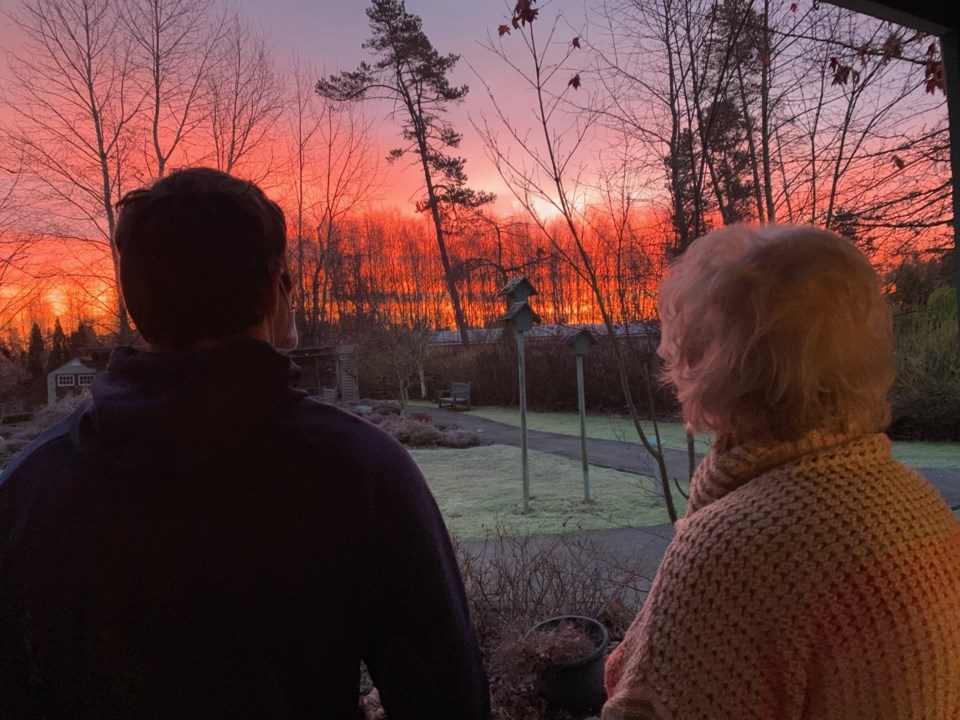Perhaps one of the weird things about death is how shocking it is — even when it really shouldn’t be.
The fact he was 95, and every major organ was basically failing, still didn’t prepare me for the jolt that was my father’s passing earlier this month.
It didn’t help that the old guy still had his wits to the end, telling stories, asking for a scotch, demanding I help him get out of bed to go use the washroom.
That was the hard part, telling him “no, you can’t do that, you’re not strong enough.” At one point he said, “I know I’m wrong, but let me be wrong.”
He would have rather fallen on his face trying than be denied his right to make his own choices — and mistakes.
I couldn’t blame him. It really prompts the question of free will versus safety. To a child we can say, “No, you’re not allowed, it’s not good for you.” But what right do we have to say that to a coherent adult? Maybe none, but we did, although I’m not sure for how long we would have kept that up.
The last column I wrote, about a month ago, was also about my dad, his health and the medical system. At that time I was complaining about the lack of home care, which seems sadly ironic now. It turned out he wouldn’t be at home much longer.
Soon after I wrote that, he was in emergency, from there it was up to the internal unit. Then up another floor to palliative and finally off to the hospice.
Perhaps the toughest part was in palliative where he was stuffed into a room with three or four others. It was around Christmas so everyone had visitors. At one point, I realized my dad had spent 12 days surrounded by a white curtain, (he was never lucky enough to be put beside a window) hearing disembodied voices from around the room, sometimes hallucinating due to a blood infection.
Playing the piano, under the DO NOT PLAY sign
It felt like a form of torture.
When I pointed this out to the doctor (who, by the way, was brilliant in his care for both my dad and the rest of us as we came to terms with what was happening), he asked the nurses to move his bed into the communal lounge area for a couple of hours.
It was Boxing Day and they were already short-staffed, but they did it. My daughter started playing the piano under the DO NOT PLAY THE PIANO sign. I fed him crushed ice, which the nurses forbade for fear he’d choke. And didn’t he rally — swearing, cracking jokes, teasing his grandkids.
Unfortunately, it didn’t last and the next couple of days he mainly slept and finally the decision was made to move him to the Salvation Army Rotary Richmond Hospice.
Again noting the circularity of life, one of the first stories I did for the Richmond News as a reporter was an announcement that Milan Ilich was making a significant donation toward the building of what would be Richmond’s first and only hospice.
I’m not sure if I even knew what a hospice was at the time. What was obvious, however, was the incredible amount of passion fuelling this project. And I can assure you now, that passion lives on. Touches like the hand-made quilt on every bed may seem small, but in moments of vulnerability can give the sense of coming home.
It occurred to me that the hospice was everything home health wasn’t. The hospice is a private organization, yet the coordination between it and the hospital was seamless. Is it because there’s only one, or because it’s a not-for-profit?
I don’t know, but our experience there couldn’t have been more different than when we left the hospital after earlier visits and began negotiating the fractured and confusing hybrid world of private and public home support.
As I looked out the French glass doors of my dad’s hospice room at the glorious sunrise that followed just minutes after his passing, I knew this little sanctuary, that provided such a gentle end, would make it possible for us all to rest in peace.

